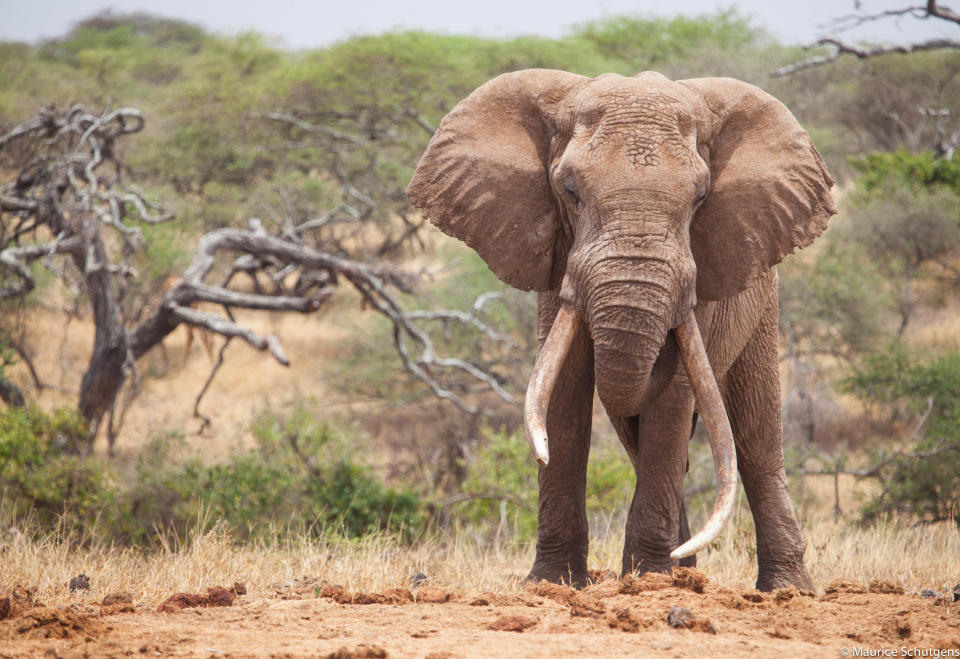The power of coexistence

Preventing the poaching of African elephants has been one of the foremost global conservation concerns ever since their number plummeted from millions roaming the continent to just 415,000 today. Great gains have been made in the fight against poaching and the illegal trade of ivory tusks.
Yet as Africa’s human population increases, and wildlife habitats shrink, the competing needs of people and elephants are bringing them into ever closer contact - and with that comes a mutual threat if coexistence cannot be achieved.
In Uganda, if a herd of elephants trample crops - known as ‘crop-raiding’ - it can put an entire family’s livelihood at risk. Food security is one of the country’s most critical concerns, with around 16.5 million Ugandans - 41.7% of the population - living below the Poverty Line.
Uganda has an estimated 6,000 elephants and with a dense human population around its protected area network has amongst the highest rates of Human Elephant Conflict [HEC] in East Africa.
To help protect the livelihoods - and improve the lives - of people living near elephant habitats, theUgandan Government is working to address HEC and promote coexistence between the two.“We work to support that coexistence,” says Dr Max Graham, founder and CEO of conservation charity Space for Giants, which works with Uganda Wildlife Authority [UWA] to provide sustainable solutions to HEC.
“Stopping elephants from raiding fields for food reduces the tensions between farmers and wildlife.That makes elephants people’s allies not their enemies.”
In August 2020, the UWA with Space for Giants completed the build of Uganda’s inaugural electric fence, which laid the foundations for improving the relationship between people and elephant habitats, along the Kyambura Game Reserve, bordering Queen Elizabeth Protected Area. This 20km long pilot fence proved incredibly effective. Where previously there had been reported daily crop raids by 77% of neighbouring farmers, in the most recent survey 98% report no crop raids in the last 12 months.
“I used to sleep outside guarding [my] crops, “ said one local farmer who wished to remain anonymous. “I would not know how my family slept, sometimes I would reach home and find that thieves had attacked my home. But now everyone sleeps in the house; the electric fence has helped us a lot and we became happy.”
Now that there is an assurance that crops will survive to harvest, communities have the confidence to grow more valuable produce, such as bananas - rather than just cotton or maize. As such, a solution to mitigating HEC is actively helping to secure and boost the incomes of local Ugandans.
Dr Graham says ”we have spent close to two decades working in these landscapes, studying how people and wild animals live together, and how that relationship is changing.
“We understand that to survive, these landscapes and their wildlife must prove that they bring value now and long into the future. Then they become assets people and governments fight to protect.”
In the increasingly industrially-dominated landscapes of Africa, as cities spread and farmlands expand, the land left for elephants to roam is disappearing quickly. Prioritising human coexistence with wildlife provides a mutually beneficial and sustainable solution to protecting the habitats elephants depend on to survive.
Donate to Space for Giants HERE.
Read More
Elephants relocated in Kenya to prevent conflict with humans
Remote-control gate gives elephants a path to safety
Stop the Wildlife Trade: The link between illegal wildlife and deadly diseases

 Yahoo Finance
Yahoo Finance 